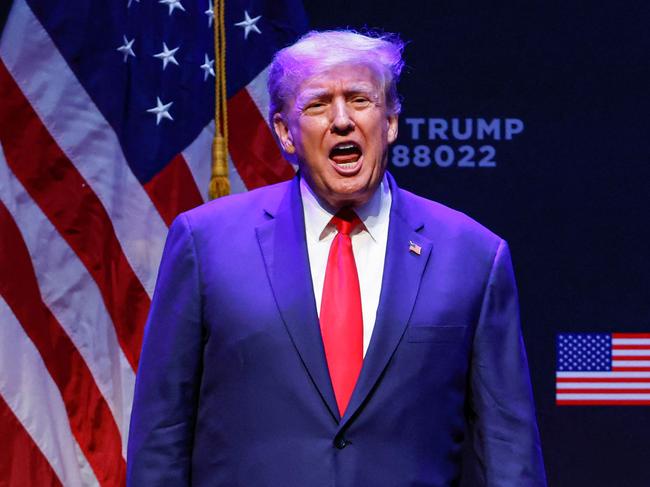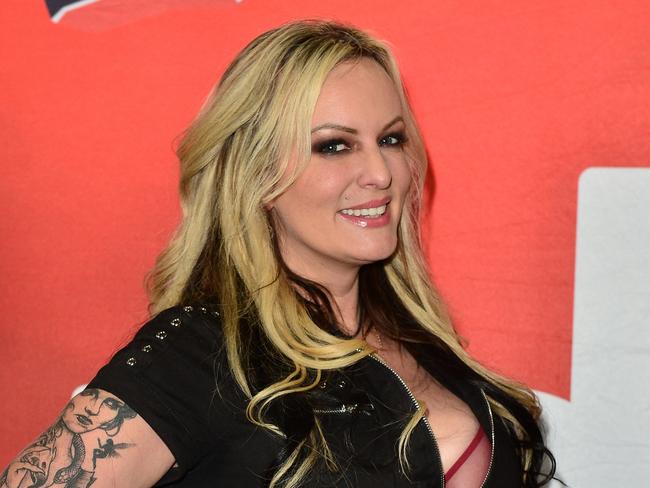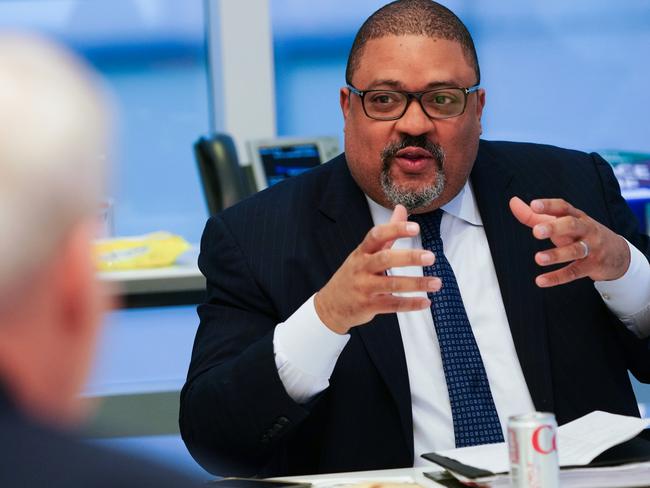Donald Trump’s plan to use porn star hush money charges to fuel White House run in 2024
Will criminal charges help or hinder Donald Trump’s tilt at returning to the White House? Either way, he is defiantly unafraid.
World
Don't miss out on the headlines from World. Followed categories will be added to My News.
It is rather surreal that the question of whether criminal charges will help or hinder Donald Trump’s bid to return to the White House has been so earnestly debated this week.
For anyone else, campaigning for the world’s most powerful job while under indictment, on trial or even in prison would be an obvious non-starter. For the former president, however, the imminent threat of prosecution has him right where he wants to be: in a fight.
Trump has skated around the criminal justice system for decades, cultivating relationships with New York prosecutors in his pre-political life as a property mogul to guard against his reported fear of being arrested.
Those allies now long gone, Trump is facing the prospect of returning to his hometown to be charged, fingerprinted, photographed and maybe even handcuffed.
And according to those close to him, he is plotting to use the historic moment – no US president has ever been hit with criminal charges – to fuel his campaign for the 2024 Republican nomination.

“He’s not scared,” his lawyer Alina Habba says.
Trump ignited a media storm last weekend when he predicted he would be arrested on Tuesday and called for his supporters to “take our nation back”.
The crowds were small in New York and outside his Florida home as the day came and went without an indictment.
But charges are still expected soon over $US130,000 paid to Stormy Daniels in 2016 to keep the porn star’s claim that she slept with Trump out of the headlines before that year’s presidential election.
Even though he denies the affair, Trump – with an eye on next year’s election – is now more than happy to keep the case in the headlines.
He has been posting constantly on his social media site, mostly in all-caps missives (“THERE WAS NO CRIME!”), while his team fires off fundraising emails to supporters and hires a camera crew to capture his arrest.
Trump is fighting on multiple fronts. He has accused Daniels, who he cruelly calls “Horse Face”, of harassing him in an extortion plot.
And he says his former fixer Michael Cohen – who made the payment to Daniels, went to jail for it and vowed to “take a bullet” for Trump before turning into a prosecution witness – is a “sick man” and a “fake storyteller”.
Ostensibly, Trump’s primary target is Manhattan District Attorney Alvin Bragg, who he claims is a racist pawn for a billionaire Democratic donor whose prosecutorial record has turned the city into an “absolute HELLHOLE”.
“We do not tolerate attempts to intimidate our office or threaten the rule of law in New York,” Bragg told his staff in response.
However, as Republicans rushed to repeat Trump’s claim that the case was a political witch hunt, it was the reaction of Florida Governor Ron DeSantis that exposed him as the former president’s top target in practice.

DeSantis, who is on the verge of announcing his own White House run, remained silent for several days before needling Trump over the hush money, saying: “I just can’t speak to that.”
As the ex-president unleashed on social media on “Ron DeSanctimonious”, Trump’s one-time mentee then doubled down by declaring himself to be a drama-free winner – the opposite of his Republican rival.
Chris Christie, an ex-Trump adviser who is considering his own 2024 bid, also called into question Trump’s embrace of his predicament.
“Being indicted I don’t think ever helps anybody,” he said.
“You can look at Alvin Bragg as the Manhattan DA, see that he’s a partisan … but you can also think that Donald Trump is not someone who could be a winning general election candidate for the Republican Party because of all these things.”

Indeed, the hush money saga is considered the least problematic criminal investigation into Trump, having become known as the “zombie case” because the District Attorney’s Office refuses to let it die.
Legal experts say it rests on an untested legal theory that falsifying corporate records can be upgraded to a felony if federal campaign finance laws are broken.
As the Republican primary race takes shape over the coming months, prosecutors will also decide whether to charge the former president in three other potentially explosive cases.
A special counsel in the Justice Department and a district attorney in Georgia are examining Trump’s efforts to cling to power in the wake of his 2020 defeat, which sparked the January 6 Capitol riot, while the special counsel is also probing his mishandling of classified files.
Back in 2016, 10 months before Trump first won the White House, he boasted: “I could stand in the middle of 5th Avenue and shoot somebody, and I wouldn’t lose voters.”
Fortunately, he never put that theory to the test. But Trump may soon be a defendant and a candidate, and his fellow Americans will decide his fate on both counts.





